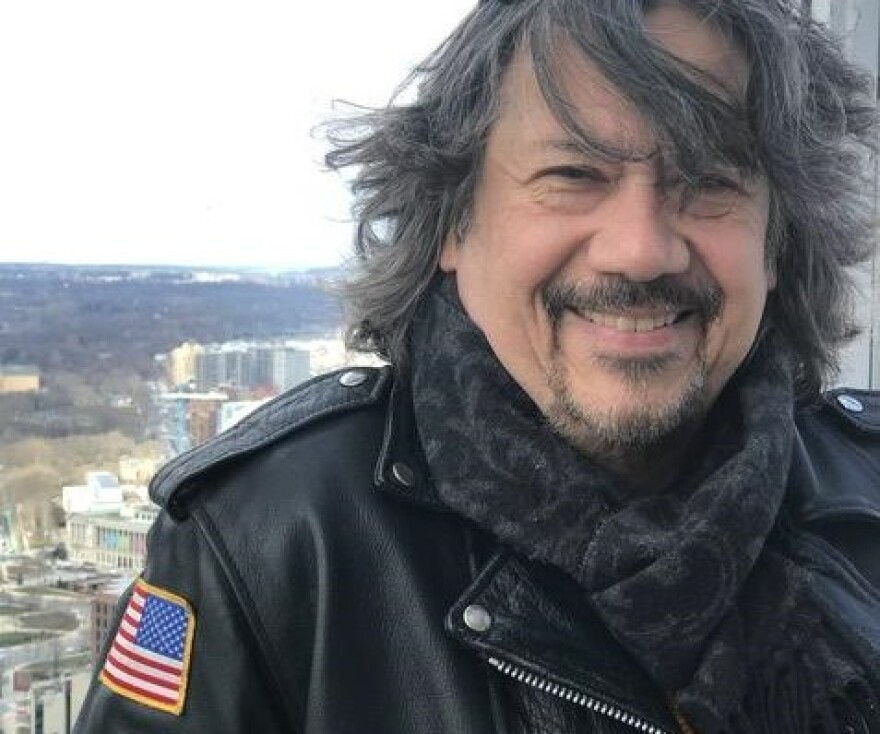Richard Katrovas had a rough childhood. His father served time in federal prison and his mother was terminally ill. He grew up in poverty, sometimes living in the back of a car or in motels. But Katrovas says he cherishes that past. He says it made him more American, more patriotic, and more keenly aware of what works - and what doesn’t - in our country. Katrovas is the founder of the Prague Summer Program for Writers. He's also the author of eight books of poetry and prose and has won many awards. He’s has been a professor of English at Western Michigan University since 2002. Katrovas’ third and newest memoir is Poets and the Fools Who Love Them (Louisiana State University Press, 2022).
“In this book, I’m concerned with the social role and relevance of poets more than with poetry,” Katrovas says, reading from his book. “Indeed, there is little verse seasoning these essays.”

In writing about the experiences of his childhood and youth, Katrovas adds, “I want to understand both viscerally and intellectually what America is. I’m trying to understand what America is relative to my experience—and my experience has been outside the norm, which is good. But I also realize it can give me a skewed perspective on things, relative to what most folks see as the ‘American Experiment.’ I’m quite liberal in my politics; I’m pretty far left. But I’ve become more American. I’m trying to figure out what patriotism means for a left-leaning intellectual.”
Katrovas says he has observed a flip in our body politic, where “those of us who were nurtured on counter-culture sentiments now find ourselves the truest advocates of America, whereas before we were in opposition.”
Along with these observations, Katrovas also writes in his essays about his role as a father to three Czech-American daughters, about his search for surrogate father figures in other poets, about white privilege and the crime that has fostered, and about art as a means to stave off the fear of extinction. He finally concludes that if those who love poets aren’t themselves poets, then they are surely saints.
“We are all isolated existentially,” he says. “And yet that isolation is also, I think paradoxically, what connects us, if we’re able to remind ourselves that our singularity is multiplied eight billion times on the face of the earth.”
Richard Katrovas previously taught for twenty years at the University of New Orleans.
Listen to WMUK's Art Beat every Friday at 7:50 a.m. and 4:20 p.m.




